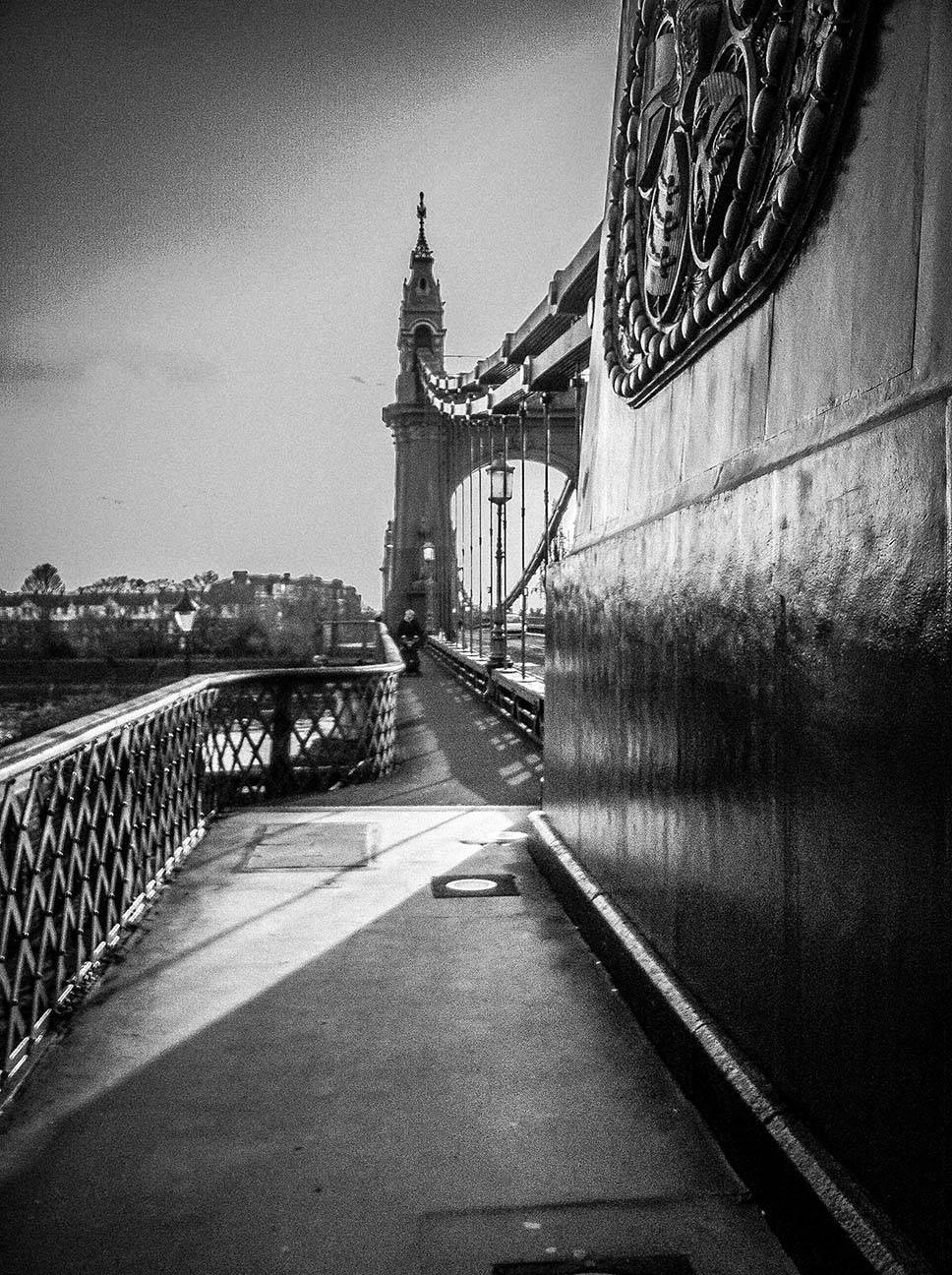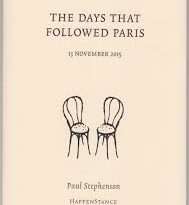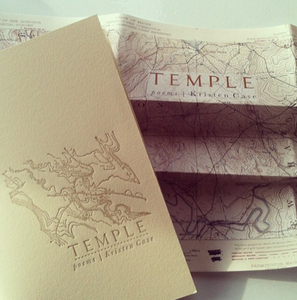Hammersmith by Sean O’Brien
– Reviewed by Charlie Baylis –
Sean O’Brien is “one of the most important poets currently writing in English” (does anyone know the dark knights behind this importance index?). I note O’Brien’s importance simply because I have never read him before, aside from some of the reviews he writes for The Guardian (which I think are clear, fair and balanced pieces). Now, however, I have a chance to engage with his poetry in the form of a beautifully produced chapbook, Hammersmith, from Hercules Editions.
Hammersmith is comprised of two cantos, written in Dante-esque tercets (though they only rhyme when O’Brien deems it necessary), adorned with black and white photos of Hammersmith captured by the poet, a fitting visual accompaniment to the cantos.
Owen Hatherley makes clear in his introduction that “Sean O’Brien’s Hammersmith doesn’t exist”: instead these cantos write an unwritten history, their locale largely an imagined place, evoked in shadowy memories through the eyes of an alter-ego poet ‘Ryan’, a foppish flâneur of the streets, bars and dance halls. O’Brien, although born in London, “never [felt] entirely present there”: his childhood was spent in Hull. Much of the imagery in Hammersmith is derived not just from O’Brien’s imagination, but also from Night and the City, a brilliant 1950 film-noir set in the district.
O’Brien points out in his foreword that “[Hammersmith] bears more resemblance to a dream than a factual record; its task is to evoke rather than substantiate.” The work is more interesting for being conceived and written this way. Reading Hammersmith, I can understand why O’Brien is held in such high esteem. One of his central preoccupations is the passing of time, as he explains in an interview with The Literateur:
I’m drawn to lots of things, among them the past. The survival of the past into the present interests me – for example the way that in some places in England it could still be the 1950s or even earlier…time is an inescapable poetic subject.
These cantos, which I imagine O’Brien will fashion into a full length work, are very much preoccupied with time: what it changes, what it leaves standing. The opening lines are auspicious:
England is finished, not that it matters
When even the weather is done for,
When the Boat Race ends though it’s barely begun,
‘England is finished’: strongly put. The England our parents and grandparents knew has changed and is changing, creating an uncertain amount of uncertainty about who we are. In Hammersmith O’Brien sees his identity shift in the blue swirls of never-ending London rain. Sean O’Brien doesn’t really know Hammersmith, which is paradoxically one of the reasons why he is writing about it, attempting to attach himself to an anchor. Identity is such an important hold, whether real or imaginary; when parts of our past (Hammersmith is presumably where O’Brien’s parents met and fell in love) change, it becomes harder to be sure of that identity. Those familiar with Charles Baudelaire’s mesmeric ‘The Swan’ will be aware the heartache that upheaval in Paris at the end of the 19th century brought out in Baudelaire: “Paris has changed, but in my grief no change”. Sean O’Brien does not know Hammersmith in the way that Baudelaire knew Paris, but he is no less distressed:
A hundred rain-blue roofs and other rooms,
A park that hurries out of sight –
The wind at dusk applies the whip –And the risen moon presiding from afar.
Oh loneliness, your name is Hammersmith.
The river fills again, the barges wake and shift
This beautiful imagery is the mainstay of Hammersmith: rooftops, railway lines and of course, the river. O’Brien is an immensely gifted poet blessed with a delicate touch and a highly musical ear, the spring of rhythm dancing through: ‘The big-band silence, the make-do-and-mend’.
Hammersmith is the poetry of loneliness, deeply immersed in a long forgotten, hallucinatory past, uncertain and a little afraid of the future. It is a chapbook well worth reading and I’ll be very excited to read on, if (as I hope) there will be more.






Thanks, will buy it